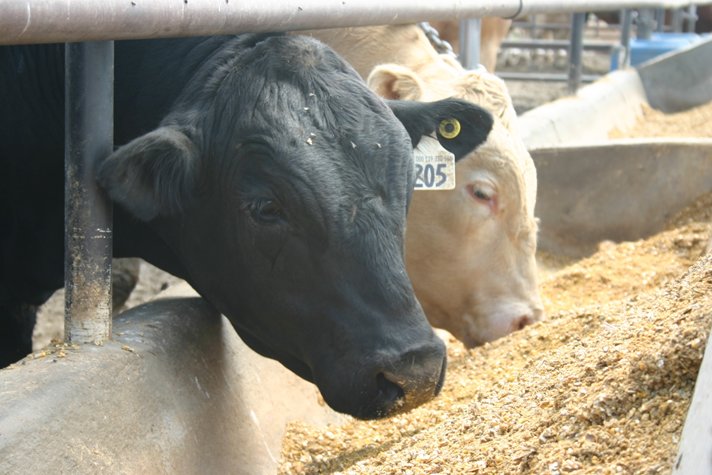
By Matt Leubbe, UNL Feedlot Extension
Beef feedlot managers, owners, employees and supporting industry personnel attended presentations for the latest in feedlot health, nutrition, environment and economics. The Roundtables were offered in Nebraska with 6 remote links to sites in Iowa with Iowa State University Extension. Selected topics and speakers were recorded as webinars for those that were unable to attend. This month we will highlight presentations from Jim MacDonald and Galen Erickson. The links to their webinars are below.
Changes in gain during feeding period- Jim MacDonald https://connect.unl.edu/tcfnvzw.z77cra/
Feedlot closeouts were evaluated to determine how animal performance changes throughout the finishing period on a live and carcass weight basis. Some cattle feeders have the paradigm that when feed costs are high and profit margins are negative it is more profitable to market cattle early. This if often true when selling on a live weight basis to protect investments. However, many producers sell on a carcass basis and the data suggest selling early may not be beneficial. Optimal profitability may be achieved by feeding steers longer when selling on a carcass-basis because the transfer of gain to the carcass is improved throughout the finishing period. To see more of these data you can view the recorded presentation by Jim MacDonald during the 2014 Feedlot Roundtable.
Using fiber for cattle or ethanol- Galen Erickson https://connect.unl.edu/t8nayuw.7okdkf/
New technologies are available in the ethanol industry allowing the conversion of cellulose to ethanol as an advanced biofuel. Currently new cellulosic ethanol plants are being constructed to use fiber many cattlemen rely on as a feedstuff. Galen Erickson discusses how fiber is our #1 need for energy during the lifetime of most cattle at the 2014 Feedlot Roundtable. Future expansion of cellulosic ethanol includes using the fiber component of distiller grains which will change the nutrient composition of the byproduct and also how it is used in beef diets.